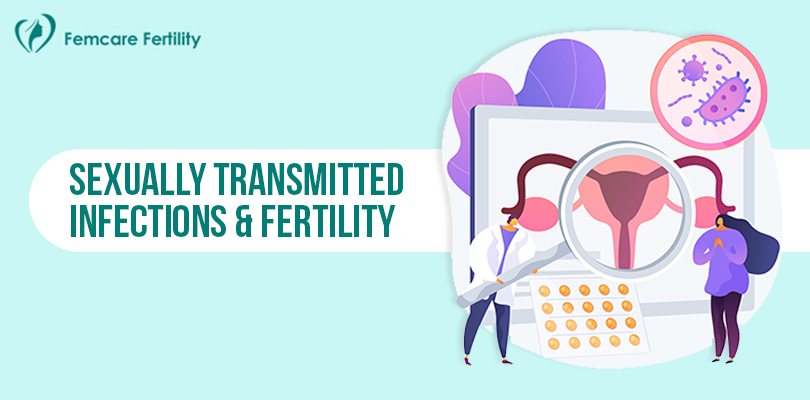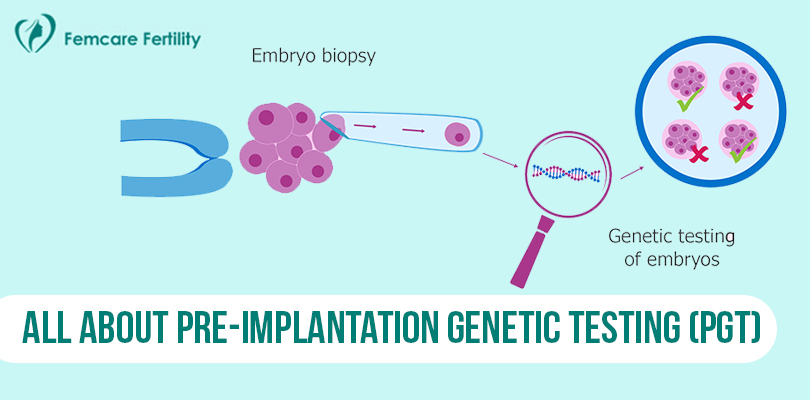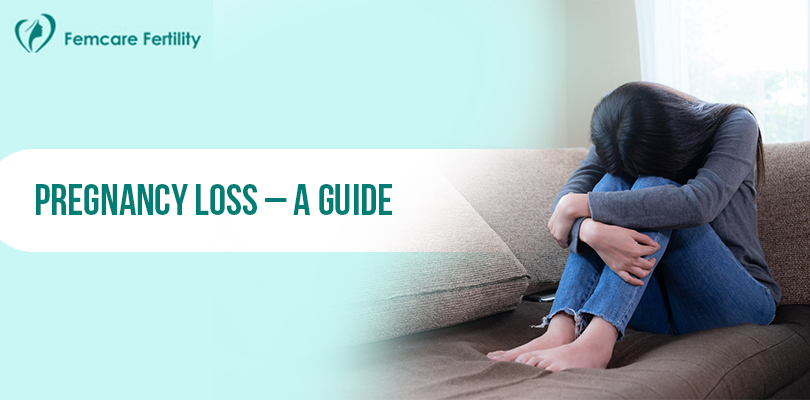Sexually transmitted infections (STIs), synonymously called sexually transmitted diseases (STDs) are conditions that can spread from an infected person usually via sexual interaction when the infective agent is present in the semen, vaginal fluids, anal secretions, saliva, blood. Some of these infections may also spread through skin contact, infected needles or from mother to child in pregnancy/childbirth or breastmilk. Micro-organisms can directly enter the uterus if it crosses the cervical barrier during delivery, miscarriage, pelvic examinations or intrauterine device insertion These STIs can impact sexual health and reproductive fitness.
STIs affect fertility:
STIs are one of the major factors associated with tubal factor infertility in women. The infection, if undiagnosed and not treated, can severely affect ovaries, fallopian tubes, uterus, cervix by causing inflammation, scarring and blockage. This makes it difficult for the release and passage of eggs from the ovaries into the tube for fertilization and eventually into the uterus. Scarring of the uterine lining can cause problems with implantation of the fertilized egg.
In males, an untreated infection can cause reduced sperm count, erectile dysfunction, tubal blockage hampering sperm movement.
In infected pregnant mothers, the babies are at-risk of having birth defects, prematurity and associated complications, low-birth weight, stillbirth, neonatal death.
Risky behaviour:
- Unprotected sexual intercourse (without condoms) is one of the major risk factors for contracting STIs. Most of the infections do not show symptoms or symptoms may appear much later. The infected person is unaware of carrying the infection, so if not careful, they risk passing it to their partner(s) unknowingly.
- Engaging in sexual activities with multiple partners
- Sharing of needles (substance abuse and unsafe drug use), razors, toothbrushes
Common symptoms:
These infections may not always show symptoms immediately in most cases. If the infection spreads further, there may be some major indicators like:
- Persistent lower abdominal, back pain
- Unusual vaginal or penile discharge (with/without foul smell and weird colour)
- Pain and burning on urination
- Untimely bleeding/ spotting
- Pain in the testis for men
- Fever
Common STIs:
Syphilis:
The syphilis rash (sore) containing bacteria is contagious and any contact with it can lead to spreading alongside the sexual transmission. It is also known to pass from an infected mother to the child during pregnancy.
Untreated disease can cause scarring and blockage of the epididymis in men (epididymitis), erectile dysfunction in the long-run in men. It also leads to increased risk for miscarriages, stillbirth and affected children (congenital syphilis) in infected pregnant women.
Gonorrhoea:
It is caused by bacteria and can spread through oral, vaginal or anal sex, affecting not only the genitalia but also the throat and anus. It can lead to epididymitis in men. Sperms thus cannot travel into the ejaculate from the testes, hampering fertility.
Chlamydia:
It is a bacterial infection which can cause severe harm to the fallopian tubes gradually leading to infertility in women. In men, it may reduce sperm quality, lead to swelling of urethra, epididymis and prostate gland all amounting to infertility.
Chlamydia and gonorrhoea are the most common STIs reported and majorly associated with PID (about 90% PID cases).
Trichomoniasis:
It can lead to very foul smelling and frothy vaginal discharge of grey/green/yellow colour, itching/burning/swelling/redness of the genitalia. If it occurs with other STIs can increase PID risk. It also increases risk of pre-term delivery and smaller babies in pregnant women.
Mycoplasma Genitalium:
It is a fairly newly identified bacterial infection. It can cause urethral and cervical inflammation, PID in women and urethral inflammation along with other common symptoms in men.
Pelvic Inflammatory Disease (PID):
It is an effect of long-term progression of untreated STIs. 10-15% of women with untreated chlamydia can have PID. Re-infection with gonorrhoea can increase risk of developing PID. The bacteria enter through the vagina during sexual contact and can spread to the uterus, fallopian tubes and ovaries over time.
PID can lead to scarring and blockage of the fallopian tubes which makes passage of egg to the uterus difficult. If fertilised in the tube, it can lead to a fatal condition called ectopic pregnancy, where the fertilised egg implants in the tube itself.
Apart from the common STI symptoms, other indicative signs of PID are:
- Pain in upper abdomen
- Pain during sexual contact and around the time of ovulation
- Fatigue, vomiting, fainting
Sexually active women under 25 years having unprotected sex, use of intrauterine contraceptive devices, douching and past PID history all increase risk of PID.
The expert doctor will check for discomfort and swelling around the uterus, ovaries, cervix, vagina. Diagnosis may be confirmed on sonography, pelvic or even laparoscopic examination.
Rarely, surgery might be required if infection leads to pus formation, to remove it.
Herpes simplex virus (HSV):
It is a viral infection which can pass via the genital blisters through sexual contact. The genital blisters can be very painful and limiting. It can have serious effects on the baby of an affected mother, if infected during vaginal delivery. It indirectly causes reduced fertility as partners don’t engage in sexual activity which delays conception.
Human papillomavirus (HPV):
HPV is transmitted through skin contact, which leads to development of warts in the genitalia and on the skin. Like with HSV, these warts and their treatment (which can be for years) can be sexually limiting, pushing time for conception. Some HPV virus types can lead to cervical cancer in women and genital cancers in men hampering fertility.
Human Immunodeficiency Virus (HIV):
A serious viral infection which spreads via sexual activities, to the baby of an infected mother via breastmilk or during pregnancy. The affected individual is asymptomatic till a couple of months and symptoms gradually develop over the years progressing to AIDS. There is no cure for HIV, though medications can improve quality and years of life. However since the usual baby-making route is risky, couple with an affected partner wanting children can opt for ART.
Hepatitis:
Hepatitis B is mostly transmitted by sexual contact as it present in genital fluids. Homosexual men are more at-risk of contracting hepatitis A through anal sex. Hepatitis B infection leads to poor sperm motility and number in men as well as tubal factor infertility and susceptibility to PID in women.
Diagnosis:
Regular STI testing is strongly recommended for sexually active individuals specially in cases of multiple partners, getting into a new relationship, partner diagnosed with an STI or before planning a pregnancy under an expert, even if asymptomatic. Pregnant women are also advised to undergo STI testing in early pregnancy.
Blood test (for antibody or antigen detection)– Syphilis, hepatitis, HIV, herpes Urine test – Trichomoniasis, gonorrhoea, chlamydia
Swabs (vaginal/cervical for women, penile for men) for either bacterial culture test or microbial DNA test – HPV, chlamydia, herpes, gonorrhoea
Physical examination of the vagina, cervix to check for blisters, sores, warts or any cancerous growth Earlier the diagnosis, easier the treatment and preventable are the serious long-term effects.
Prevention / Treatment:
STI checks should be done prior to conceiving, under a doctor’s guidance.
In case of a known STI, abstinence from sex till the infection is cleared is the most effective prevention method.
Use of condoms can also help to prevent transmission
Bacterial STIs can be treated with an antibiotics course fairly easily if detected in the early stages. The treatment must be completed thoroughly to flush out all the bacteria and prevent re-infection. If the infection persists, stronger antibiotics may be prescribed.
Viral STIs cannot be completely cured, but severity of the symptoms and flare-ups can be reduced with anti-viral medication.
Vaccines are available for HPV, Hep B. Staying up-to-date on the vaccinations can also help prevent the infections.
If the tubes are affected, they need to be repaired either non-surgically by tube cannulation (long flexible tube inserted into the fallopian tubes to remove the block) or surgically by salpingectomy (removal of the affected part of the tube) / salpingostomy (creation of another opening around the ovary). Type of treatment will depend on severity of blockage and its location.
If the damage is severe and tubes are not salvageable, IVF can be sought as an option for pregnancy. However, it is essential to make sure that the infection is cleared before conception.
It is imperative that the couple planning pregnancy is aware about STIs and get tested for them. Femcare Fertility’s best gynaecologist in Pune for infertility is your go-to person to help you understand STI testing and its implications. Femcare Fertility is a top IVF center in Pune where surgical management facilities are also available, if the couple with infected partner(s) needs more assistance for conception.





